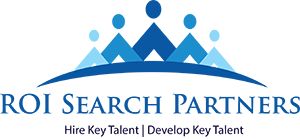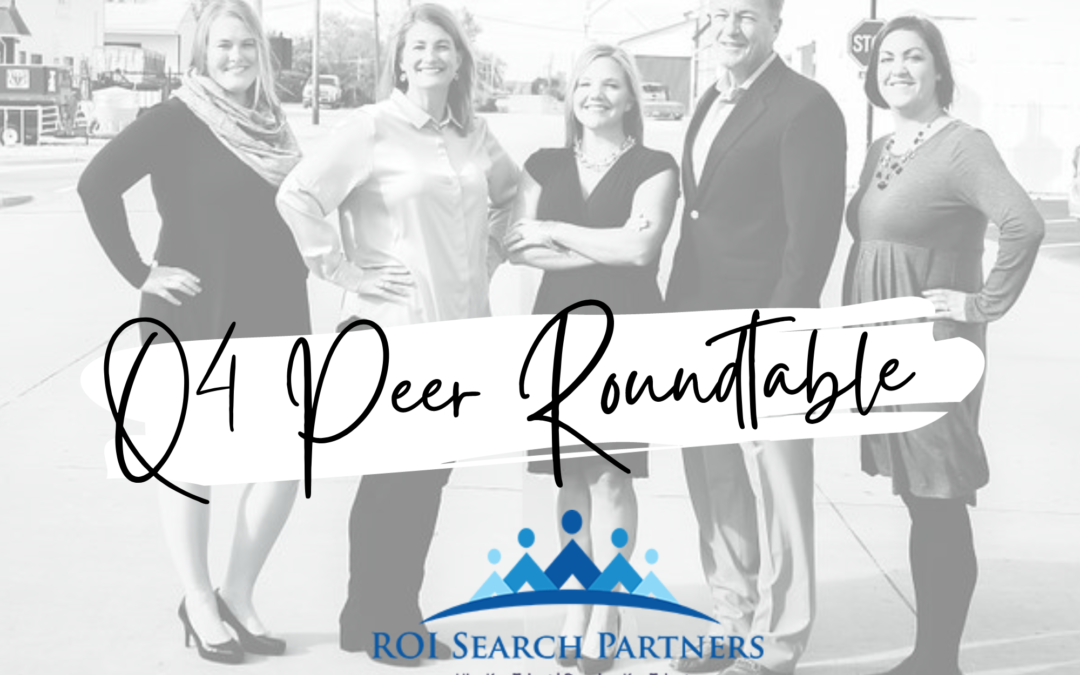Last week, as we often do, we held a roundtable with HR leaders across the St. Louis area. This discussion was focused around “the balance of empathy and resiliency” within our organizations. The topic stemmed from a lunch conversation between Mark and Julie Tuggle-Ngueyn EVP/HR for Midwest BankCentre, which turned into an invitation for Julie to lead this conversation among peers.
Julie kicked off the conversation talking about well-being in the workplace and even well-being in our world (and how that overlaps) for our team members. That led us to conversation around how our roles as HR have changed, and how the role of the leader is evolving too, especially considering the changing expectations of team members.
As we do during these roundtables, we make this a safe space to share so what follows are thoughts and experiences, not necessarily solutions. Our hope as you read these notes is that you too can feel seen and heard and can continue to learn and grow with us!
Changes for HR Leaders
The impact of HR became even more visible during COVID, and our roles continue to change dramatically. Some realizations and challenges shared were that we can’t be everything to everyone, and we need to stop trying to take everything on especially when it’s the leader or business responsibility to solve. We can absolutely be a partner, but we can’t do this alone! We also need to establish boundaries (schedule) and model this for others, to reduce stress and take the time to care for ourselves.
Managing Stress + Burnout
HR isn’t the only group feeling the burn. Our organizations are tired! So much change keeps coming and we are feeling change fatigue. Some of our leaders shared thoughts around how they are handling this:
- We are being vocal and supportive of our employees taking a break by providing virtual classes over the lunch hour for yoga and mindfulness, and we added sessions at the end of the day for higher impact exercise – it’s been very well received by the team!
- We are tackling the stress of being understaffed by building better relationships with our hiring leaders, and cross training our team to make it easier to take time off and fully disconnect.
- We implemented a 2PM Friday cut off for meetings!
- We aim for no meeting Fridays, and this happens 80% of the time. It’s been very impactful, allowing us to use this focused time centered around getting work done, planning, and thinking. You can’t focus on growth and strategy in pockets between meetings!
- We use timeboxing or blocking to realistically map out our days/weeks to accomplish tasks.
- We block one week per quarter for “deep work week.” We have also started experimenting with a four-day work week.
- We are requiring meeting agendas and asking meeting organizers to really consider who needs to be there, who the decision maker is and what they want to accomplish in the meeting. If they can’t determine that, the meeting shouldn’t be scheduled.
- We are doing spot checks with team members – sometimes we can miss the little signs that they could be in distress.
- We are using the tools available to us in Microsoft (Google has these too!) to shorten meetings, create focused time blocks, and to start and end our days with centering or breathing activities.
- We are talking about the value of monotasking.
Mental Health Matters
So much has changed in our workplaces, and our newest generation of team members has a different view of mental health care that challenges previous generations. There is less of a stigma now around mental health, and organizations are learning how to create the space for these types of conversations. Some of our leaders shared thoughts around this topic:
- We grew up in very different environments, no one took mental health leaves, but we are learning how to navigate this with team members now.
- Perspectives around resilience are different – push through vs live through (and acknowledge feelings).
- Candidates are negotiating more time off in offers. It’s not all about pay. They want to work to live, not live to work!
- Sometimes I think older generations are put off by this, because for the most part, awareness & focus on total health didn’t exist when they were coming up the ranks.
Human Centered Leadership
As we discussed mental health matters and taking care of ourselves and our team members, we circled back to changing roles of ALL leaders, not just HR! We need to own this change collectively and talk about it as a leadership team. The idea of people focused leadership was accelerated by COVID, and it can’t just be pushed to HR because it’s uncomfortable for many leaders. We need to help our leaders lean in and have these tough conversations about the diverse cultures that they lead. Two books shared by leaders around this included Lead Like a Human and Sticking Points.
Change is here to stay!
If we took one thing away from this conversation, it’s that change is constant, and it will continue. BUT we have each other to lean on, bounce ideas off and brainstorm with.
As always, we enjoy and appreciate the willingness of leaders in our community to come together and support one another with ideas, “me toos”, and even the courage to say, “I don’t know!!” We look forward to the opportunity to continue these conversations and watch the relationships grow between members of this community.
And THANK YOU to Julie for your insight and guidance during this session!


Recent Comments